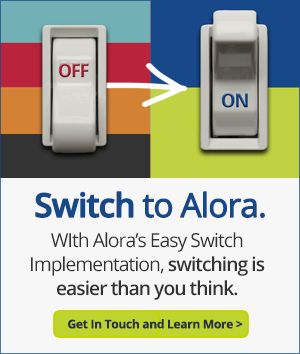
20 Aug Managing Home Healthcare Workers
Ideas for inspiring your home health care staff and building loyalty
Managing a team in home health means a lot more than simply assigning visits and tracking hours. You have got to inspire people who do emotionally taxing work. Your caregivers’ satisfaction, engagement, and trust in you will shape how they care for patients. If you fail to lead, they may go looking for another employer. To be a leader whom your team respects and trusts, pay attention to these practical strategies for good leadership.
Emotional Empathy in Home Healthcare Leadership
Your caregivers must confront a lot of emotions, both their patients’ and their own. Oftentimes they will also encounter their patients’ difficult family dynamics. This requires a level of empathy that includes awareness and actionable items such as:
- Don’t ignore their feelings
- Be a good listener
- When a caregiver shares a concern or frustration, show that you care
- Be professional, but personable
Your empathy clears the way, opens a safe space, and encourages employees to speak up. Ask what you can do to help and look for opportunities to take immediate action. When you follow through, they will feel supported, and they’ll respect you.
Scheduling and Burnout
 Besides the emotional labor, there are also the physical challenges of working in such a demanding industry as patient care. Home health can be draining. Strive for reasonable scheduling and offer flexible shifts wherever possible. It’s so important to avoid overloading your top performers simply because they’re reliable. Supporting your staff’s health and well-being reduces burnout and turnover.
Besides the emotional labor, there are also the physical challenges of working in such a demanding industry as patient care. Home health can be draining. Strive for reasonable scheduling and offer flexible shifts wherever possible. It’s so important to avoid overloading your top performers simply because they’re reliable. Supporting your staff’s health and well-being reduces burnout and turnover.
Staff members thrive when their roles and responsibilities are clear. Ambiguity causes stress and confusion. So, make extra sure that your team understands your expectations from the start. Then, provide regular, constructive feedback. Don’t wait for their annual review! Short check-ins after a difficult case or a quick “thank you” text after a long shift will go a long way. When feedback is consistent, you avoid blind-siding your staff, and they feel guided.
Recognition doesn’t have to be elaborate. Even a quick shout-out during a team meeting, or a personalized thank-you card, will boost morale. Your agency’s social media should include posts that feature your caregivers by name. Celebrate not only clinical excellence but also qualities like compassion, patience, and teamwork. Your people feel seen and valued when they receive frequent acknowledgment.
Training, Interaction, and Staff Development
 This next point is one that I take very personally: your training sessions should be fun! If you approach training as a chore, then your caregivers will, too. Ask them what they want to learn and then provide those opportunities. Bring in guest speakers so that you’re not the one who does all the talking. Supporting career growth helps you retain talented caregivers who might otherwise seek advancement elsewhere. Plus, better-trained staff means higher quality care and fewer costly errors.
This next point is one that I take very personally: your training sessions should be fun! If you approach training as a chore, then your caregivers will, too. Ask them what they want to learn and then provide those opportunities. Bring in guest speakers so that you’re not the one who does all the talking. Supporting career growth helps you retain talented caregivers who might otherwise seek advancement elsewhere. Plus, better-trained staff means higher quality care and fewer costly errors.
It’s also essential to invest in the tools needed to make your staff feel prepared to deliver optimal patient care. From home health software, to patient care materials, to AI learning modules and tools, there have been massive advancements in the technology that can empower nurses and caregivers to reach their professional peak.
Visibility matters. Caregivers notice when their manager is unavailable or out of touch. No matter how busy you are, plan to attend occasional home visits with staff, drop by during shift changes, or schedule open office hours. Put it in your calendar! Being accessible signals to your team that you’re approachable and you understand the reality of their work. You can spot challenges early and resolve them before they escalate, but only if you are physically there and present to take action.
Challenges with “People-Skills”
Sometimes different people will disagree. It’s predictable. Whether it’s a scheduling dispute, a personality clash, or a patient complaint, you must address the issue quickly and impartially. If you delay taking action, or you’re biased in resolving a conflict, you will erode trust in your leadership. Apply your agency’s policies consistently and explain your reasoning. Even if they don’t agree, at least your employees will understand your decision.
Caring for an ailing patient or especially an elderly person in their home can be lonely and isolating. Caregivers need a sense of connection to a larger team. Therefore, go out of your way for team bonding. That means both professional meetings and social gatherings. It’s up to you to make sure each team member knows everyone else by their first name. Encourage them to talk and share their insights with each other. Do this well, and you will find that they can often solve problems and resolve disputes on their own, without your having to intervene.
The Take-Away
 As a leader, you must set a good example. Model the kinds of behavior that you expect from your staff. This means that when you say you will do something, you actually have to follow through and do it! If you want your people to be reliable and punctual, then you have to show up on time. Your tone of voice and how you carry yourself will set the standard. When employees see you handling challenges with integrity and composure, they are more likely to emulate your behavior.
As a leader, you must set a good example. Model the kinds of behavior that you expect from your staff. This means that when you say you will do something, you actually have to follow through and do it! If you want your people to be reliable and punctual, then you have to show up on time. Your tone of voice and how you carry yourself will set the standard. When employees see you handling challenges with integrity and composure, they are more likely to emulate your behavior.
The bottom line: home health is a hard job. Thus, it follows that your role of caring for the caregivers should be even harder. Not only do you have a business to run, but you also have to lead by example and with compassion. By treating caregivers like highly trained professionals, you will win their trust and loyalty. The secret to leading a home-health agency is to deal with each person, not as an employee, but as your partner in delivering the highest quality
Author’s Note: Views, information, and guidance in this resource are intended for information only. We are not rendering legal, financial, accounting, medical, or other professional advice. Alora disclaims any liability to any third party and cannot make any guarantee related to the content.
Related blogs:
- Mental health challenges in home health care patients
- The ten best ways to show caregivers appreciation
- How to make your agency the expert on homecare
- Increasing home health care patient engagement
- Improving caregiver retention through nurse mentor programs

Alora can help your agency stay compliant with reporting, assessment, and staff management with a streamlined interface that is built for both skilled and non-skilled homecare operations. Awarded easiest to use and best customer support in Software Advice’s Reviewer’s Choice awards, everything is easier when you have a simple solution that gives you everything you need in one place. To learn more about how ALORA partners with agencies for peak clinical performance, productivity, financial success, and compliance, click the link below to

“From an Agency Owner’s Desk”
About The Author
Michael Mussman is a well tenured home health care thought leader, former agency CEO, and public speaker. As a versatile content and communication creator his contributions to publications, events, and other engagements bring a unique and experienced voice that often makes complex subject matter more easily explained. With decades of experience in the industry, his insights, personal experience, and passion for speaking to the intricacies of home health care make him a welcome addition to Alora’s team of thought leadership content contributors.




No Comments